#berne germany
Explore tagged Tumblr posts
Text



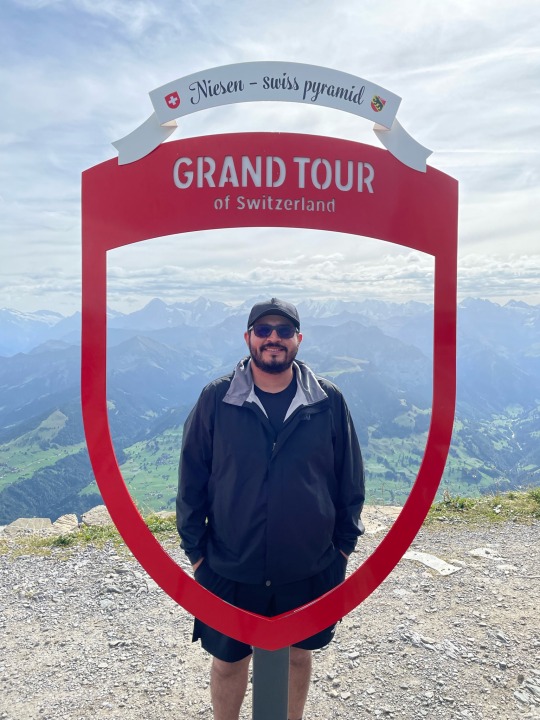

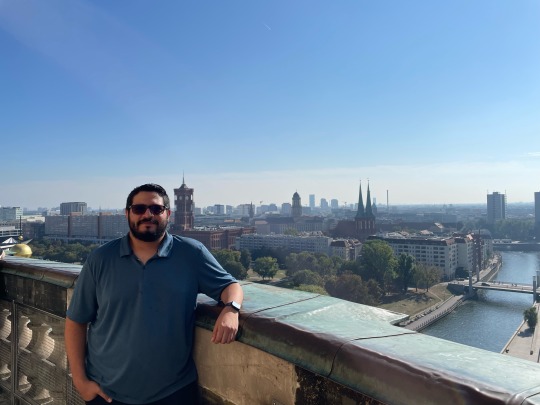

haven't posted pictures in a while so here's a pic of each city/country that i did during my Europe trip 😋
#me#mine#selfie#personal#my face#myself#europe#dublin#edinburgh#london#paris#bern#munich#prague#berlin#amsterdam#brussels#ireland#scotland#england#france#switzerland#germany#czech republic#netherlands#belgium#travel
3 notes
·
View notes
Text













German Language Day
Interest in the German language is growing again – especially in southern Europe. This may be due to Germany’s highly-regarded educational system, its positive economic development or indeed its reputation as a whole. “German Language Day” aims to promote German independently of trends.
Until recently, the number of people learning German was on the decline. Every five years, the “Netzwerk Deutsch” – a network comprising the Federal Foreign Office, the German Academic Exchange Service (DAAD), the Goethe-Institut and the Central Agency for Schools Abroad (ZfA) – publishes a comprehensive study on the status of German in the world. The most recent survey in 2010 recorded a good 14 million learners of German – around 2.7 million fewer than in 2005. The statistics revealed that numbers were falling particularly in the countries of the former Eastern Bloc. At the same time, there were also countries in all continents where the number of German learners was increasing. Numerous educational projects are preserving and promoting interest in German, such as the school twinning initiative “Pasch”.
Launched by the German Language Association (VDS) in 2001, this year’s German Language Day will be focusing above all on diversity within one’s own linguistic world. Its theme is “German and Its Variants” – which include not only conventional dialects but also the street slang “Kiezdeutsch”, specialist jargon used in particular professions, “officialese” and the language used by the media. At various venues, promoters of the German language will be staging readings, exhibitions and prize award ceremonies.
Source
#Bern#Rostock#Warnemünde#Leipzig#travel#original photography#vacation#tourist attraction#landmark#architecture#cityscape#summer 2020#Germany#Deutschland#Schweiz#Switzerland#German Language Day#14 September 2024#second Saturday in September#Seenotretter Informationszentrum Mecklenburg-Vorpommern#GermanLanguageDay#TagDerDeutschenSprache#Kolonialstein#Völkerschlachtdenkmal#Monument to the Battle of the Nations#Nürnberg#Nuremberg
1 note
·
View note
Video
Quodlibet masquerade (1912) by Susanlenox Via Flickr: Artist : F. GYGI
#carnaval#karneval#maskenball#casino#querubin#querubim#poster#plakat#cartel#vintage#carnival#music#performance#mask#ball#masken#masquerade#Engelhard#Julius Ussy#alemania#germany#casino bern#advertising#publicidad#baile de máscaras#flickr
1 note
·
View note
Text



Painted art postcards that show national / ethnic costumes.
#costumes#women#national#ubiory#kostiumy#pocztówka#post card#litho#kartka#litografia#niemcy#germany#Ungarn#Bern#Schweiz#svizzera#Hungary#stroje#ubrania#odzież
0 notes
Text
Friday 1 August 2003 - Swiss National Day - Cisalpino to Zürich - the Swiss hit parade - Montreux at the other side of the lake from Geneva
Friday 1 August 2003
Swiss National Day
Hi everyone! Today we will be going from Stuttgart to Montreux. First we will take the Cisalpino train from Stuttgart Hbf to Zürich HB, then a national train to Montreux, a REV to Geneva and return to the hostel for the night. Also it would be the first time that I heard a Swiss-German version of "Where the wild roses grow".
Hallo allerseits! Heute geht es von Stuttgart nach Montreux. Zuerst nehmen wir den Cisalpino-Zug von Stuttgart Hbf nach Zürich HB, dann einen Nationalzug nach Montreux, einen REV nach Genf und kehren für die Nacht zum Hostel zurück. Außerdem wäre es das erste Mal, dass ich eine schweizerdeutsche Version von "Where the wild roses grow" hörte.
Salut tout le monde! Aujourd'hui, nous allons de Stuttgart à Montreux. Nous prendrons d'abord le train Cisalpino de Stuttgart Hbf à Zürich HB, puis un train national jusqu'à Montreux, un REV jusqu'à Genève et retournerons à l'auberge pour la nuit. Ce serait aussi la première fois que j'entendrais une version suisse-allemande de "Where the wild roses grow".
Zdravo vsi! Danes bomo šli iz Stuttgarta v Montreux. Najprej se bomo odpeljali z vlakom Cisalpino od Stuttgart Hbf do Zürich HB, nato z nacionalnim vlakom do Montreuxa, REV do Ženeve in se vrnili v hostel za nočitev. Prav tako bi bilo prvič, da bi slišal švicarsko-nemško različico "Where the wild roses grow".
Pozdrav svima! Danas ćemo ići iz Stuttgarta u Montreux. Prvo ćemo uzeti vlak Cisalpino od Stuttgart Hbf do Zürich HB, zatim nacionalni vlak do Montreuxa, REV do Ženeve i vratiti se u hostel na noćenje. Također bi to bio prvi put da sam čuo švicarsko-njemačku verziju pjesme "Where the wild roses grow".
Ciao a tutti! Oggi andremo da Stoccarda a Montreux. Prima prenderemo il treno Cisalpino da Stuttgart Hbf a Zürich HB, poi un treno nazionale per Montreux, un REV per Ginevra e ritorno all'ostello per la notte. Inoltre sarebbe la prima volta che ascolto una versione svizzero-tedesca di "Where the wild roses grow".
About 6 AM I woke up, took a shower and went to the breakfast room in the hostel. The hostel has expanded much, that it has become quite a labyrinth. The only other time I stayed at that hostel was February 2007 before I went to Portugal for a week. After I checked out, I walked uphill to the tram stop for line 15. Until February 2007, I would have no idea that a high floor replacement would ever be built for the DT8 cars. The GT4 U Bahn car came, I boarded it, went through Charlottenplatz, Schloßplatz and finally Hbf. At the time, I had no idea about the existence of the Stuttgart21 project to tear apart the Bonatzbau, which was the building that comprised of Stuttgart Hbf, and replace the head station with an underground through station. I found the platform where the Cisalpino train to Zürich would depart from. I found my place in the first class compartment. In 2003, if you took the Cisalpino anywhere between Chiasso and Italy, you would be required to pay a reservation fee. However, from Germany to Switzerland, this was not necessary at all.
About 9 AM, the train departed Stuttgart Hbf, though in August 2004 I would return. The train went pretty much the same direction that I went, on Friday 15th November 2002, but in the opposite direction. It went through Horb, Rottweil, Singen (Hohentwil), Schaffhausen and Zürich. Much of the journey was single track, but the entire journey was electrified without the need to change locomotives. Obviously it is not necessary with the Cisalpino as it is an electrical multiple unit that needs no external engine in most cases.
About 12 PM, the train arrived in Zürich, and I had about an hour layover until the train to Montreux would depart. The SBB train was more like an Intercity that I remember riding in September 2000, especially from Lausanne to Zürich, not the Dostos that I rode from Zürich to Chur. It did not even have a Panoramawagen that I rode on the 25th July 1998 or 15th September 2000, but I was grateful for the air conditioning considering it was summer. The train departed about 1 PM, and it went through Lenzburg, Aarau, Olten, Solothurn, Grenchen Süd, Biel-Bienne where it crossed the Röstigraben, then past Twann BE, on to Neuchâtel / Neuenburg, Yverdon les Bains VD, Lausanne and Montreux. Along the way, I had my radio with me, and was able to record some local FM broadcasts, including the DRS3 station. They were playing the best of Swiss music for that year. Two songs among many others were being played - "Trybguet" by Patent Ochsner and "Where the wild roses grow" by Michael von der Heide and Kuno Lauener. Also "Häbs güet" by Plüsch was played.
I would have to change to a local REV train to be able to go to the Territet station. REV is the commuter rail system in the Canton of Vaud, where Montreux is located. There is also a cable car from Territet to Glion. The youth hostel was about a fifteen minute walk away, at Rue du Bocherex. I had a bed reserved at the Montreux hostel because the one in Lausanne was fully booked but the one in Montreux was not. I checked into my room, and left my bag there. At L'Eaudine, I caught the bus to the Territet station, and took the REV to Geneva. Territet and Montreux are part of the Vevey trolleybus network. I took the REV to Geneva to see it while it was a bit quieter, as the next day would be very busy, especially between Parc Mon Repos and the Pont Mt. Blanc, towards Jardin Anglais and the Heurloge Fleurie (flower clock). Little had changed since I had visited last, which was November 2002. I returned to the hostel by train, and walking to the hostel from Territet was simple enough. I went to bed about 11 PM, there was no curfew for that hostel.
Please join me tomorrow, when I return to Geneva, take a short tram ride to Gaillard via Thônex, do some shopping at the SPAR grocery store, watch the Lake Parade from 2 PM to 7 PM, take a train ride to Martigny, eat supper and return to Territet for the train ride to Ljubljana, Slovenia. Good night!
Bitte begleiten Sie mich morgen, wenn ich nach Genf zurückkomme, eine kurze Straßenbahnfahrt über Thônex nach Gaillard mache, im SPAR-Lebensmittelgeschäft einkaufe, mir von 14.00 bis 19.00 Uhr die Lake Parade anschaue, eine Zugfahrt nach Martigny mache und zu Abend esse und Rückkehr nach Territet für die Zugfahrt nach Ljubljana, Slowenien. Gute Nacht!
Rejoignez-moi demain, à mon retour à Genève, faites un court trajet en tram jusqu'à Gaillard via Thônex, faites quelques courses à l'épicerie SPAR, assistez à la Lake Parade de 14h à 19h, faites un tour en train jusqu'à Martigny, dînez et retour à Territet pour le trajet en train vers Ljubljana, en Slovénie. Bonne nuit!
Pridružite se mi jutri, ko se vrnem v Ženevo, se kratko peljite s tramvajem do Gaillarda preko Thônexa, nakupujte v trgovini SPAR, si oglejte Lake Parade od 14.00 do 19.00, odpeljite se z vlakom do Martignyja, pojejte večerjo. in vrnitev v Territet za vožnjo z vlakom v Ljubljano, Slovenija. Lahko noč!
Pridružite mi se sutra, kad se vratim u Ženevu, kratko se provozajte tramvajem do Gaillarda preko Thônexa, obavite kupnju u trgovini SPAR, gledajte Lake Parade od 14 do 19 sati, odvezite se vlakom do Martignya, pojedite večeru i povratak u Territet za vožnju vlakom do Ljubljane, Slovenija. Laku noć!
Per favore, unisciti a me domani, quando tornerò a Ginevra, fai un breve viaggio in tram fino a Gaillard via Thônex, fai un po' di shopping al negozio di alimentari SPAR, guarda la Lake Parade dalle 14:00 alle 19:00, fai un viaggio in treno fino a Martigny, cena e ritorno a Territet per il viaggio in treno a Lubiana, in Slovenia. Buona notte!
#Deutschland#Germany#Stuttgart#Schaffhausen#Zürich#DRS3#Michael von der Heide#Kuno Lauener#Patent Ochsner#Trybguet#Plüsch#Häbs güet#Röstigraben#Aargau#Solothurn#Bern#Neuchâtel#Vaud#Genève#Montreux#Lausanne#Territet#REV#heurloge fleurie#Jardin Anglais#Pont Mont Blanc#Lac Leman#Lake Parade
0 notes
Text
Cantor Jennifer Bern-Vogel was used to hearing her mother tell the story.
On the evening of Nov. 9, 1938, her mother, then Marianne Katzenstein, who was 16 at the time, was in her family’s synagogue in Bielefeld, Germany, practicing the organ. She finished up, used a key to lock the building and returned home. Later that night, the synagogue was burned to the ground by the Nazis in the Kristallnacht pogrom.
Only two items survived the fire: a Torah scroll and Katzenstein’s key.
“I just remember her talking about it, her voice would change and she was just kind of slower and softer and very nostalgic when she talked about the whole story,” Bern-Vogel, 67, said in an interview. “Whenever she told the story and then held up the key, people always — and I experienced it myself — there was always this kind of gasp.”
Bern-Vogel, who has been the cantor at Congregation Emanu El in Redlands, Calif., since 2009, said the story of the key was “legendary” in her family.
And on Saturday, 86 years after Kristallnacht, the key returned home.
Bern-Vogel spent the past week in Germany, where she had lived for more than a decade when she was younger, reconnecting with friends, family and the Jewish community of Bielefeld, where the synagogue was reestablished shortly after the Holocaust. It was her first trip to Bielefeld with her husband and daughter, and her brother and niece, as well as a cousin from Denmark, also flew in for the occasion.
On Friday night, Bern-Vogel and the cantor of the Bielefeld synagogue led Shabbat services together. Bern-Vogel sang a song that was adapted from a poem written by her grandfather, with music composed by a longtime friend from Germany.
And following Havdalah on Saturday, the town held a ceremony that began at the site of the destroyed synagogue before moving to City Hall, where the official hand-off was made. The key was added to the collection of the town’s history museum and will be on display at the current synagogue building.
According to Irith Michelsohn, the president of the town’s Jewish community and of Germany’s Progressive Jewish movement, Bielefeld’s Jewish community has 450 members. The synagogue the community uses now was renovated from an old Protestant church and was inaugurated in 2008.
Prior to the Holocaust, Bielefeld was home to almost 1,000 Jews, Michelsohn said. The community has been revitalized since Michelsohn took the helm on Jan. 1, 2000, at which point she said there were only 35 members.
Michelsohn said the key’s return is immensely meaningful to the community.
“I was so excited, because we only have one Torah scroll, and now the key, that’s all we have from our old synagogue,” Michelsohn said. “And now the key is back. That’s so great, you can’t imagine.”
Michelsohn said the key is especially important as a vehicle to educate the current community about its past. She explained that like many German Jewish communities, Bielefeld’s Jews are almost all originally from the former Soviet Union.
“You don’t have many people who are originally from Germany,” she said. “Some of them converted to Judaism, some immigrated from Israel or other countries or are working in Bielefeld with a university, but most of the members in all of our 120 Jewish communities in Germany are from the former Soviet Union.”
The key, Michelsohn said, represents an opportunity to “teach them something about history, about the past, what we lost.”
It also returns a physical reminder of the old synagogue building, which had been built in 1905 and was commissioned by the Katzenstein family. Bern-Vogel’s maternal grandfather had been the head of the Jewish community, and helped hundreds of families escape Germany.
“It symbolizes a connection to the old and very, very nice building which we had,” Michelsohn said, adding that the destroyed synagogue was “such a marvelous building.”
Like the key she kept, the remarkable story of Bern-Vogel’s mother did not end in 1938. The following year, she and her younger sister escaped to England on the Kindertransport. Years later, she was at a Shabbat dinner in Israel when she met Julian Bernstein (later shortened to Bern), Bern-Vogel’s father, who also survived the Holocaust.
Julian was one of six children from a Lithuanian family, but only he and one brother survived the Holocaust. That brother, Leon Bernstein, and Bern-Vogel’s mother were both working for the World Jewish Congress; Leon hosted the Shabbat dinner where Julian and Marianne met.
The two were engaged within a week, and eventually settled in Iowa, where Bern-Vogel and her brother were raised.
In the later years of her mother’s life, Bern-Vogel said there had been efforts to bring the key to the United States Holocaust Memorial Museum in Washington, D.C. But a contact her mother had at the museum passed away, and in 2017, so did she, at 94 years old.
“It just held a very deep connection,” Bern-Vogel said, referring to the key, a copy of which she still has. “I don’t think I thought about, when we were growing up, that the key would be anywhere else but with us. It kind of belonged to us.”
But as her mother aged, Bern-Vogel said her family wanted to determine where the key should go to be best taken care of and hold the most meaning. After a couple recent trips to Germany, Bern-Vogel said the answer crystallized.
“It just became clearer over the last couple of years, and especially after I went there last summer to meet with them at the synagogue and the museum, that it would really mean the most for everyone and future generations for it to be there,” she said.
Bern-Vogel said that even though her mother had a fraught relationship with Germany because of how her family’s time there ended, Bielefeld will always be their home. And she knows her mother would appreciate knowing that the key has made it back.
“I think that she would be incredibly moved by the reception that the key is going to have, and the people that are involved in the city,” Bern-Vogel said. “I think she would be very honored and happy, and I think grateful.”
94 notes
·
View notes
Photo

Two Accounts of Zwingli's Death
Huldrych Zwingli (l. 1484-1531) died in the second of the Kappel Wars in 1531, a conflict between Catholic and Protestant forces. Afterwards, two accounts of his death emerged – one Catholic and one Protestant – differing in detail and notable as examples of the schism between the two groups caused by Zwingli's reformation.
Zwingli, leader of the Protestant Reformation in Switzerland at the time, had instigated the First Kappel War and agreed to a blockade of Catholic provinces between 1529-1531 in an effort to forcibly convert the Catholic cantons (provinces) to his Reformed vision of Christianity. To the Protestants of Zürich – and then other cantons that converted to his faith – he was a God-inspired hero and champion of Christian truth while, to the Catholics, he was a dangerous heretic. When he was killed in the Second Kappel War, a Catholic victory, the differing faiths were succinctly summarized in the two accounts of his death.
The Catholic account was written by the playwright and mercenary Johannes Salat (d. c. 1561) who was present at both the First and Second Kappel War and could easily have been an eyewitness to the event. The Protestant version was the work of Zwingli's admirer, and successor to his position in Zürich, Heinrich Bullinger (l. 1504-1575), who was still in his hometown of Bremgarten in 1531 and could not have been a witness to the events he describes.
After the Second War of Kappel, Swiss cantons were given the freedom to choose Catholicism or Protestantism and kept an uneasy peace which did nothing to address the animosity each side felt for the other. The two accounts of Zwingli's death are among the best documents of the time expressing how each side understood their own beliefs and how they viewed the other.
Kappel Wars
The Kappel Wars were the result of increasing tension between Protestant and Catholic Christians in Switzerland, which had been growing since Zwingli began preaching for the reform of the Church in 1519. The Protestant Reformation, though it had earlier advocates, began in 1517 in Germany through the efforts of the priest and theologian Martin Luther (l. 1483-1546), and by 1519, Zwingli was rejecting church liturgy and calling for reform in Switzerland. In 1522, Zwingli challenged the traditional practice of Lent, and in 1523, in a public disputation, Zwingli's 67 Articles expressed the tenets of his faith and denounced the Church's policies as unbiblical.
Zürich embraced Zwingli's vision and, by 1529, a number of other cantons had as well. Five Catholic cantons refused to renounce their faith, however, and Zwingli, formerly a pacifist, advocated for war to change their minds. He believed that a united Protestant Switzerland would represent God's true will for the Church on earth and that Catholics who refused to recognize this were not only standing against Zwingli and his teachings but against God himself. Accordingly, he mobilized the Protestant cantons to attack the Catholics in the First Kappel War of 1529.
This engagement ended before it could begin when a delegation from the Protestant canton of Bern negotiated a peace. Although the First Peace of Kappel held off hostilities, it did nothing to address the underlying issues and, further, was not clear on certain points, notably how Catholic cantons were to receive – or allow – Protestant preachers in their regions. To speed the Catholics' conversion, Zwingli called for war a second time but was forced to agree to the less severe measure of a blockade of the Catholic cantons in May 1531.
Although the blockade was lifted later, the Catholics felt they needed to respond before Zwingli suggested a further attempt, and so they marched on Zürich in October 1531, catching the city by surprise. The Protestants were badly outnumbered, poorly mobilized, and lacked strong leadership, leading to their defeat in under an hour. Zwingli was among the 500 casualties of the Protestant forces.
Continue reading...
19 notes
·
View notes
Note
I know you 'produce' a lot of athletes in soccer, football and so on but I'd like to become an ice hockey star - maybe I can replace an actual player and you find another solution for him? I'm open for your suggestions but nice abs are a must 😉
Monday morning. 08:30. Start of duty at the call center. The phones are ringing off the hook. It's going to be another great week, you can feel it. There's still slush on the streets of Berlin outside. Somehow spring is not coming at all this year. After the third caller who berates you for things you can't do anything about, you're already fed up. You greet the fourth caller with a friendly "Grützi". Shit, where does your Swiss accent come from… You're actually from northern Germany… Nonsense! Bern is not in northern Germany. You are proudly Swiss. The other colleagues here have always made fun of your accent…
Thank God you survived this morning. During your lunch break, you go for a run through the park. Your body needs exercise, otherwise you'll get cranky. This morning it was still bloody cold outside in Nashville. But the temperature is rising rapidly. In the early afternoon, it should finally be well over 20 degrees Celsius again. Eh, you mean 68 degrees Fahrenheit, of course. You just can't get used to the strange units of measurement here in the USA. But you'll learn that too.
The afternoon shift at the gym is always relaxed. There are hardly any people working out. Plenty of free space to do a bit of training yourself. You love to confuse new customers. With your roots in the Balkans, most people here think you're an Arab. And when you speak English with your Swiss accent, nobody knows what to believe. After 4 p.m. you have more to do. That's when some of the ice hockey team come to train. They're professionals, they're fun to talk to. Better than overweight pensioners who want to get in shape. Hehehe, but they usually tip better…
The Predators have a public practice tonight. You saw they're looking for a new fitness trainer. Ice hockey was already your passion back home in Switzerland. Now to be under contract with one of the best clubs in the world... That would be a hot deal! And you know a few of the guys quite well by now, maybe someone will put in a good word for you. A few of the less experienced fans ask you if you're an injured professional. Because you're not on the ice. Yes, you really don't look like the typical fan in your jersey….
The alarm clock rings at 05:30. You're awake two seconds earlier. Even though your family's roots are in the Balkans, you were born and raised in Bern. You are a Swiss precision instrument. Always on time. And your shots almost always hit the mark. Training on the ice starts at 09:00. Before that, you want to do your eight-mile lap and spend an hour on the weights. Last season you weren't fit enough, you missed a lot of time due to injury. That shouldn't happen to you again this season. Hard and controlled training. That's the only way to stay at the top!

Dude, you're a machine! Captain of the team. The first Swiss player to be awarded the James Norris Memorial Trophy as the NHL's best defenseman. You're one of the players with the highest advertising revenue. Some attribute it to your eight-pack. Others attribute it to your discipline and reliability. But you still have a little quirk. You call your helmet Roman. You haven't told anyone why…
64 notes
·
View notes
Text
March 23, 1933.
On that date, Adolf Hitler put the Enabling Act up for a vote before the Reichstag. The passage of this act marked the end of the Weimar Republic, and German democracy as everyone knew it. But there was resistance. Otto Wels, one of the greatest speakers to ever live and Chairman of the Social Democratic Party of Germany, stood before his peers in the assembly, many of whom were ready to capitulate to Fascism, and gave the following speech.
Ladies and gentlemen! We Social Democrats agree with the foreign policy demand raised by the Reichskanzler of equal treatment for Germany, all the more emphatically since we have always fundamentally championed it. In this context, I may be permitted the personal remark that I was the first German who stood up to the untruth of Germany’s guilt for the outbreak of the world war before an international forum, at the Bern Conference on February 3, 1919. Never was a principle of our party able to or did in fact prevent us from representing the just demands of the German nation to the other peoples of the world.
The day before yesterday, as well, the Reichskanzler made a statement in Potsdam to which we subscribe. It says: “From the lunacy of the theory of eternal winners and losers came the madness of reparations and, in their wake, the catastrophe of the world economy.” This statement is true for foreign politics; it is no less true for domestic politics. Here, too, the theory of eternal winners and losers is, as the Reichskanzler says, lunacy.
But the words of the Reichskanzler remind us of others that were spoken in the National Assembly on July 23, 1919. At that time it was said: “We are defenseless; defenseless but not without honor. To be sure, the enemies are after our honor, there is no doubt. However, that this attempt at defamation will one day redound back upon the instigators, that it is not our honor that is being destroyed by this global catastrophe, that is our belief to the last breath.”
This appears in a declaration that a social democratic-led government issued at the time in the name of the German people before the whole world, four hours before the truce expired, in order to prevent the enemies from marching further. – That declaration is a valuable supplement to the statement by the Reichskanzler.
A dictated peace is followed by few blessings, least of all at home. A real national community cannot be based on it. Its first prerequisite is equal law. The government may protect itself against raw excesses of polemics; it may rigorously prevent incitements to acts of violence and acts of violence in and of themselves. This may happen, if it is done toward all sides evenly and impartially, and if one foregoes treating defeated opponents as though they were proscribed. Freedom and life can be taken from us, but not our honor.
After the persecutions that the Social Democratic Party has suffered recently, no one will reasonably demand or expect that it vote for the Enabling Act proposed here. The elections of March 5 have given the governing parties the majority and thus the possibility of governing in strict adherence to the words and meaning of the constitution. Where such a possibility exists, there is also an obligation to take it. Criticism is salutary and necessary. Never before, since there has been a German Reichstag, has the control of public affairs by the elected representatives of the people been eliminated to such an extent as is happening now, and is supposed to happen even more through the new Enabling Act. Such omnipotence of the government must have all the more serious repercussions inasmuch as the press, too, lacks any freedom of expression.
Ladies and gentlemen! The situation that prevails in Germany today is often described in glaring colors. But as always in such cases, there is no lack of exaggeration. As far as my party is concerned, I declare here: we have neither asked for intervention in Paris, nor moved millions to Prague, nor spread exaggerated news abroad. It would be easier to stand up to such exaggerations if the kind of reporting that separates truth from falsehood were possible at home. It would be even better if we could attest in good conscience that full protection in justice has been restored for all. That, gentlemen, is up to you.
The gentlemen of the National Socialist party call the movement they have unleashed a national revolution, not a National Socialist one. So far, the relationship of their revolution to socialism has been limited to the attempt to destroy the social democratic movement, which for more than two generations has been the bearer of socialist ideas and will remain so. If the gentlemen of the National Socialist Party wanted to perform socialist acts, they would not need an Enabling Law. They would be assured of an overwhelming majority in this house. Every motion submitted by them in the interest of workers, farmers, white-collar employees, civil servants, or the middle class could expect to be approved, if not unanimously, then certainly with an enormous majority.
And yet, they first want to eliminate the Reichstag in order to continue their revolution. But the destruction of that which exists does not make a revolution. The people are expecting positive accomplishments. They are waiting for effective measures against the terrible economic misery that exists not only in Germany but in the whole world. We Social Democrats bore the responsibility in the most difficult of times and for that we had stones cast at us. Our accomplishments for the reconstruction of the state and the economy, for the liberation of occupied territories, will stand the test of history. We have established equal justice for all and a social labor law. We have helped to create a Germany in which the path to leadership of the state is open not only to princes and barons, but also to men from the working class. You cannot back away from that without relinquishing your own leader. The attempt to turn back the wheel of history will be futile. We Social Democrats know that one cannot undo the facts of power politics with mere legal protests. We see the power-political fact of your present rule. But the people’s sense of justice is also a political power, and we shall not cease to appeal to this sense of justice.
The Weimar Constitution is not a socialist constitution. But we stand by the principles enshrined in, the principles of a state based on the rule of law, of equal rights, of social justice. In this historic hour, we German Social Democrats solemnly pledge ourselves to the principles of humanity and justice, of freedom and socialism. No Enabling Act gives you the power to destroy ideas that are eternal and indestructible. After all, you yourselves have professed your adherence to Socialism. The Socialist Law has not destroyed social democracy. German social democracy will draw new strength also from the latest persecutions.
We greet the persecuted and the oppressed. We greet our friends in the Reich. Your steadfastness and loyalty deserve admiration. The courage of your convictions and your unbroken optimism guarantee a brighter future.
These immortal words burned brightly in the minds of all who fought for Democracy in the years that were to come. And another thing; Democracy did come! The Nazis lost! Because, as the great Dr. Martin Luther King Jr. once said, “The arc of the moral universe is long, but it bends toward Justice.” The night is dark, but it is joy which comes in the morning. No power on earth has been able to resist Democracy for long, and no power ever will. Four years of Hell are nothing compared to what we shall feel once the ideals we hold sacred triumph again, and I guarantee you that they shall triumph. If ever you should feel hopeless, remember Otto Wels, and imagine what must have gone through his mind as he watched his nation burn itself to death. But so too remember Otto Wels as the Russians marched into Berlin, as the Allies stormed the beaches of Normandy, and take heart knowing that like him you too shall see your country born again, brighter than ever before.
We greet the persecuted and the oppressed. We greet our friends in America. Your steadfastness and loyalty deserve admiration. The courage of your convictions and your unbroken optimism guarantee a brighter future.
20 notes
·
View notes
Text
"Growing flax to make linen was one of the oldest human activities in Europe, particularly in the Rhineland. Archeologists have found linen textiles among the settlements of Neolithic cultivators along the shores of Lake Neuchâtel in the Jura Mountains west of Bern, Switzerland. These were elaborate pieces: Stone Age clothmakers of the Swiss lakeshores sewed pierced fruit pits in a careful line into a fabric with woven stripes. The culture spread down the Rhine and into the lowland regions.
The Roman author Pliny observed in the first century AD that German women wove and wore linen sheets. By the ninth century flax had spread through Germany. By the sixteenth century, flax was produced in many parts of Europe, but the corridor from western Switzerland to the mouth of the Rhine contained the oldest region of large-scale commercial flax and linen production. In the late Middle Ages the linen of Germany was sold nearly everywhere in Europe, and Germany produced more linen than any other region in the world.
At this juncture, linen weavers became victims of an odd prejudice. “Better skinner than linen weaver,” ran one cryptic medieval German taunt. Another macabre popular saying had it that linen weavers were worse than those who “carried the ladders to the gallows.” The reason why linen weavers were slandered in this way, historians suspect, was that although linen weavers had professionalized and organized themselves into guilds, they had been unable to prevent homemade linen from getting onto the market. Guilds appeared across Europe between the twelfth and fifteenth centuries but many of the items they produced for exchange, like textiles and soap, were also produced at home right up through the nineteenth century. The intricate regulations of the guilds—determining who could join, how they would be trained, what goods they would produce, and how these could be exchanged—were mainly designed to distinguish guild work from this homely labor. That linen making continued to be carried out inside of households—a liability for guilds in general—lent a taint to the linen guild in particular.
In the seventeenth century, guilds came under pressure from a new, protocapitalist mode of production. Looking for cheaper cloth to sell on foreign markets, entrepreneurs cased the Central European countryside offering to pay cash to home producers for goods. Rural households became export manufacturing centers and a major source of competition with the guilds. These producers could undercut the prices of urban craftsmen because they could use the unregulated labor of their family members, and because their own agricultural production allowed them to sell their goods for less than their subsistence costs.
The uneasiness between guild and household production in the countryside erupted into open hostility. In the 1620s, linen guildsmen marched on villages, attacking competitors, and burning their looms. In February 1627 Zittau guild masters smashed looms and seized the yarn of home weavers in the villages of Oderwitz, Olbersdorf, and Herwigsdorf.
Guilds had long worked to keep homemade products from getting on the market. In their death throes, they hit upon a new and potent weapon: gender. Although women in medieval Europe wove at home for domestic consumption, many had also been guild artisans. Women were freely admitted as masters into
the earliest medieval guilds, and statutes from Silesia and the Oberlausitz show that women were master weavers. Thirteenth-century Paris had eighty mixed craft guilds of men and women and fifteen female-dominated guilds for such trades as gold thread, yarn, silk, and dress manufacturing. Up until the mid-seventeenth century, guilds had belittled home production because it was unregulated, nonprofessional, and competitive. In the mid-seventeenth century this work was identified as women’s work, and guildsmen unable to compete against cheaper household production tried to eject women from the market entirely. Single women were barred from independent participation in the guilds. Women were restricted to working as domestic servants, farmhands, spinners, knitters, embroiderers, hawkers, wet nurses. They lost ground even where the jobs had been traditionally their own, such as ale brewing and midwifery, by the end of the seventeenth century.
The wholesale ejection of women from the market during this period was achieved not only through guild statute, but through legal, literary, and cultural means. Throughout the sixteenth and seventeenth centuries women lost the legal right to conduct economic activity as femes soles. In France they were declared legal “imbeciles,” and lost the right to make contracts or represent themselves in court. In Italy, they began to appear in court less frequently to denounce abuses against them. In Germany, when middle-class women were widowed it became customary to appoint a tutor to manage their affairs. As the medieval historian Martha Howell writes, “Comedies and satires of this period…often portrayed market women and trades women as shrews, with characterizations that not only ridiculed or scolded them for taking on roles in market production but frequently even charged them with sexual aggression.” This was a period rich in literature about the correction of errant women: Shakespeare’s The Taming of the Shrew (1590–94), John Ford’s ’Tis Pity She’s a Whore (1629–33), Joseph Swetnam’s “The Araignment of Lewde, Idle, Froward, and Unconstant Women” (1615). Meanwhile, Protestant reformers and Counter-Reformation Catholics established doctrinally that women were inherently inferior to men.
This period, called the European Age of Reason, successfully banished women from the market and transformed them into the sweet and passive beings that emerged in Victorian literature. Women accused of being scolds were paraded in the streets wearing a new device called a “branks,” an iron muzzle that depressed the tongue. Prostitutes were subjected to fake drowning, whipped, and caged. Women convicted of adultery were sentenced to capital punishment.
As a cultural project, this was not merely recreational sadism. Rather, it was an ideological achievement that would have lasting and massive economic consequences. Political philosopher Silvia Federici has argued this expulsion was an intervention so massive, it ought to be included as one of a triptych of violent seizures, along with the Enclosure Acts and imperialism, that allowed capitalism to launch itself.
Part of why women resisted enclosure so fiercely was because they had the most to lose. The end of subsistence meant that households needed to rely on money rather than the production of agricultural goods like cloth, and women had successfully been excluded from ways to earn. As labor historian Alice Kessler-Harris has argued, “In pre-industrial societies, nearly everybody worked, and almost nobody worked for wages.” During the sixteenth and seventeenth centuries, monetary relations began to dominate economic life in Europe. Barred from most wage work just as the wage became essential, women were shunted into a position of chronic poverty and financial dependence. This was the dominant socioeconomic reality when the first modern factory, a cotton-spinning mill, opened in 1771 in Derbyshire, England, an event destined to upend still further the pattern of daily life."
- Sofi Thanhauser, Worn: A People's History of Clothing
#radical feminism#feminism#linen#history of clothing#sexism#female oppression#the rights they TOOK from us#i'm so pissed#i knew there would be misogyny in history of clothing#but this made my blood burn#Sofi Thanhauser
98 notes
·
View notes
Text

📍Potsdam - Germany
#original photographers#photography#photographers on tumblr#history#museums#architecture#current mood#germany#spotify
23 notes
·
View notes
Text

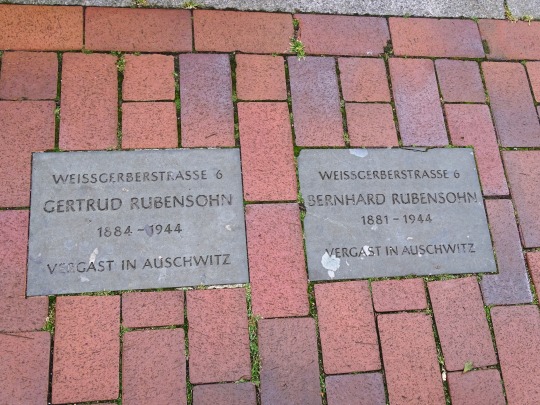
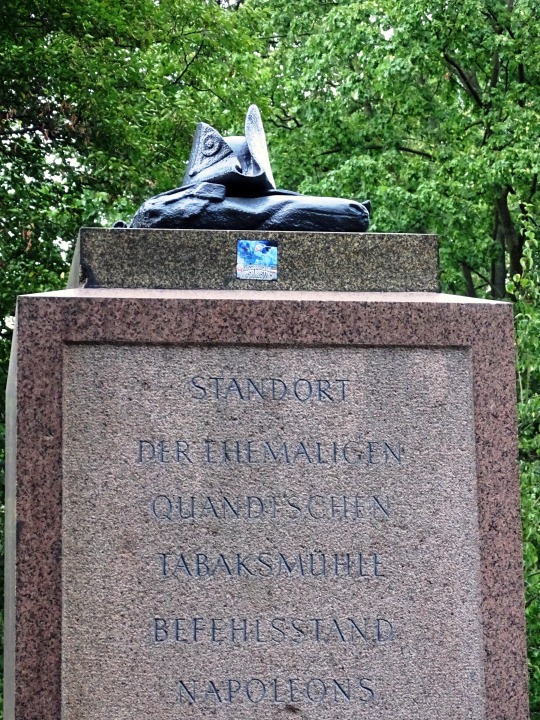

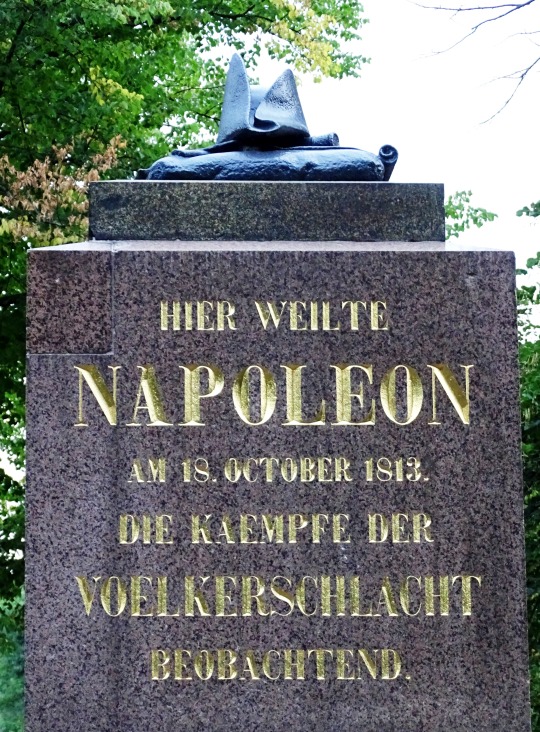
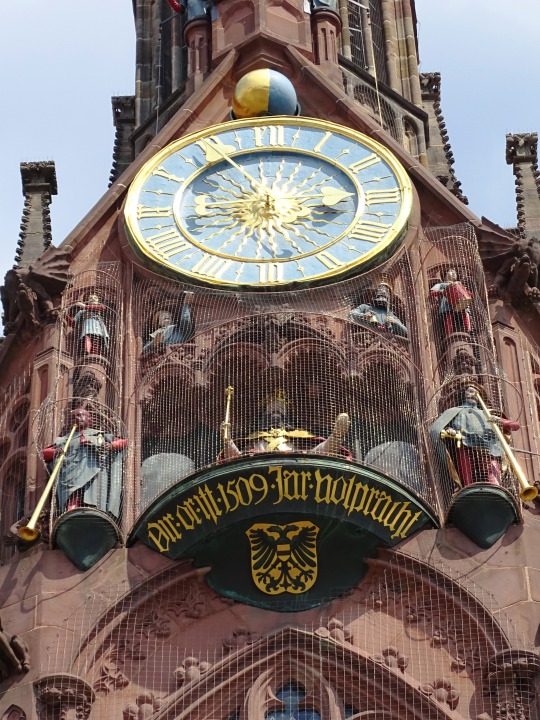

German Language Day
Interest in the German language is growing again – especially in southern Europe. This may be due to Germany’s highly-regarded educational system, its positive economic development or indeed its reputation as a whole. “German Language Day” aims to promote German independently of trends.
Until recently, the number of people learning German was on the decline. Every five years, the “Netzwerk Deutsch” – a network comprising the Federal Foreign Office, the German Academic Exchange Service (DAAD), the Goethe-Institut and the Central Agency for Schools Abroad (ZfA) – publishes a comprehensive study on the status of German in the world. The most recent survey in 2010 recorded a good 14 million learners of German – around 2.7 million fewer than in 2005. The statistics revealed that numbers were falling particularly in the countries of the former Eastern Bloc. At the same time, there were also countries in all continents where the number of German learners was increasing. Numerous educational projects are preserving and promoting interest in German, such as the school twinning initiative “Pasch”.
Launched by the German Language Association (VDS) in 2001, this year’s German Language Day will be focusing above all on diversity within one’s own linguistic world. Its theme is “German and Its Variants” – which include not only conventional dialects but also the street slang “Kiezdeutsch”, specialist jargon used in particular professions, “officialese” and the language used by the media. At various venues, promoters of the German language will be staging readings, exhibitions and prize award ceremonies.
Source
#Bern#Rostock#Warnemünde#Leipzig#travel#original photography#vacation#tourist attraction#landmark#architecture#cityscape#summer 2020#Germany#Deutschland#Schweiz#Switzerland#German Language Day#9 September 2023#second Saturday in September#Seenotretter Informationszentrum Mecklenburg-Vorpommern#GermanLanguageDay#TagDerDeutschenSprache#Kolonialstein#Völkerschlachtdenkmal#Monument to the Battle of the Nations#Nürnberg#Nurember
1 note
·
View note
Text
Women’s hockey news round up 4/25 - 5/2
PWHL:
New York clinches first overall pick
Another PWHL reserve, Abby Boreen, will properly enter the draft this year
Allyson Simpson of Colgate and Julia Gosling of St Lawrence have officially declared for the draft
Anneke Linser, Minnesota native who played in Sweden last year, plans to enter the PWHL draft
International:
Emily Nix, who was a star player in worlds for Germany and played in their domestic league, signed with SDE HF in Sweden
Emma Bergesen, a Norwegian defender and all Canadian in usports last year, signed with SDE HF in Sweden with an alleged opt out clause if she is to sign in the PWHL
Swiss forward Rahel Enzler joins the Swiss league after playing in UMaine the past few years, with EVZ’s women’s team
As mentioned previously on this blog, Clara Rozier, Viktoria Maskalova, and Kaleigh Quennec all signed with SC Bern Frauen in Switzerland
Collegiate;
Northeastern brings on the following players: former U18 Swedish National team goaltender Lisa Jönsson, team Canada U18 gold medalist Morgan Jackson
20 year old Swedish defender who’s spent the past few seasons in the SDHL, Nicole Hall, heads to Penn State
Finnish goaltender Kiia Lahtinen, who was successful in Naisten Liiga last year, heads to UMaine
33 notes
·
View notes
Text

Volksschule Berne (1929-30) in Hamburg, Germany, by Fritz Schumacher. Photo by Carl Dransfeld.
60 notes
·
View notes
Text

Regional Flag Wars: Round 1
Welcome to the Regional Flag Wars! It will focus on the flags of regions/administrative divisions, with one flag being allowed per country. This tournament has been a long time coming, as I’ve been holding many preliminary rounds to decide the best regional flags of various countries over the past year, including the tournaments the Japanese Prefecture Flag Wars and the Russian Federal Subject Flag Wars. This tournament is one of my largest, with 82 flags and six rounds. The first round will begin this week. I hope everyone is excited to vote for the greatest regional flag in the world!
Round 1:
1. Baja Verapaz Department, Guatemala vs. Tierra del Fuego Province, Argentina
2. Yucatán, Mexico vs. Alexandria Governate, Egypt
3. Nakuru County, Kenya vs. Panevėžys County, Lithuania vs. San José Department, Uruguay
4. South Ostrobothnia, Finland vs. Hirshabelle, Somalia
5. Northern Territory, Australia vs. Vysočina Region, Czechia vs. Bali, Indonesia
6. Azores, Portugal vs. Chuquisaca Department, Bolivia vs. Lower Austria, Austria
7. Brod-Posavina County, Croatia vs. Olancho Department, Honduras vs. Chuvashia, Russia
8. Brest Region, Belarus vs. Sicily, Italy vs. Batken Region, Kyrgyzstan
9. Akwa Ibom State, Nigeria vs. Amambay Department, Paraguay
10. Sarawak, Malaysia vs. Bukidnon, Philippines vs. Bratislava Region, Slovakia
11. Kosrae State, Micronesia vs. South Darfur, Sudan vs. Saare County, Estonia
12. Mpumalanga, South Africa vs. Nakhon Si Thammarat Province, Thailand
13. Gagauzia, Moldova vs. Chontales Department, Nicaragua
14. Adjara, Georgia vs. Grande Comore, Comoros vs. Wallonia, Belgium
15. Emirate of Abu Dhabi, United Arab Emirates vs. Tuzla Canton, Bosnia and Herzegovina vs. Magallanes Region, Chile
16. Töv Province, Mongolia vs. Balochistan, Pakistan vs. Tocantins, Brazil
17. Amhara Region, Ethiopia vs. Covasna County, Romania vs. Canton of Bern, Switzerland
18. New Brunswick, Canada vs. Angaur, Palau
19. San Jose Province, Costa Rica vs. Macedonia, Greece vs. Occitania, France
20. Saga Prefecture, Japan vs. Ebon Atoll, Marshall Islands
21. Greenland, Denmark vs. La Libertad Department, El Salvador
22. Donetsk Oblast, Ukraine vs. Central Equatoria, South Sudan
23. Valencia, Spain vs. Coclé Province, Panama
24. Mon State, Myanmar vs. Malampa Province, Vanuatu
25. Lublin Voivodeship, Poland vs. Santo Domingo de los Tsáchilas Province, Ecuador
26. Uva Province, Sri Lanka vs. Zulia, Venezuela vs. Agder, Norway
27. Karakalpakstan, Uzbekistan vs. Friesland, Netherlands vs. Enga Province, Papua New Guinea
28. Leicestershire, United Kingdom vs. Choiseul Province, Solomon Islands
29. Bavaria, Germany vs. Kukës County, Albania vs. Kalmar County, Sweden
30. Department of Cuzco, Peru vs. Vojvodina, Serbia vs. Heves County, Hungary
31. Alaska, United States vs. Haut-Ogooué Province, Gabon vs. Grand Gedeh County, Liberia
32. Otago, New Zealand vs. Boyacá Department, Colombia vs. Connacht, Ireland
11 notes
·
View notes
Text
What Geert Wilders Wants in Europe
On Nov. 22, Geert Wilders’s far-right Party for Freedom (PVV) won the most seats in the House of Representatives following national elections in the Netherlands. On the same day, Hungarian Prime Minister Viktor Orban gave a keynote speech in Zürich at the invitation of the conservative magazine Die Weltwoche. The latter event offers a key to understanding the former. Orban offered a preview of what Wilders wants to do with Europe.
Wilders, who has earned the right to try to form a governing coalition with several center-right parties that have already rolled out the red carpet for him, has repeatedly said in the past that he wants to take his country out of the European Union. The PVV program calls for a referendum on “Nexit.” But like other far-right politicians in Europe, Wilders has understood the lessons of Brexit: Countries standing alone in this turbulent world marginalize and weaken themselves, so instead of leaving the EU, it would be better to stay and change it from the inside. This is exactly the scenario Orban sketched out in Zürich.
For starters, Orban apologized to the audience because it had to put up with him, the leader of a small country, while in these challenging times it had deserved a speech by a real leader like Konrad Adenauer or Helmut Kohl—politicians who had ruled postwar Germany for years with a steady moral and political compass, shaping Christian democracy in Europe. But alas, Orban continued, Europe is in decline. It does not have politicians of that caliber anymore. It has lost its grip on the world because it is ruled by bureaucrats infected with the liberal-progressive bug, not by true politicians. If we want to stop this decline, he said, “we must return to classical European political and leadership culture.” This would mean national leaders taking the helm in Brussels, from now on treating European Commission President Ursula von der Leyen as “our employee, our paid employee, whose job it is to carry out what we decide.”
Wilders, whose wife is Hungarian, is close to Orban. He has visited him many times. He knows a large majority of the Dutch do not support a Nexit. Eighty percent think membership is beneficial for the country, which is higher than the European average of 72 percent. None of his possible center-right coalition partners advocate an exit from the EU. Moreover, like Orban, Wilders considers it unwise that the United Kingdom did not just leave the EU but also the single market. Orban told his Swiss audience that decisions taken in Brussels directly affect Switzerland as a participant in the single market, without Bern having any say in those decisions. All the more reason to stay and shape those decisions from the inside. For him, national sovereignty is key, and this would be better served by staying in the EU.
When it comes to Europe, sovereignty is also a key word in the PVV program. “Intensive cooperation between countries does not need a political union like the EU,” the program states. It calls for a smaller EU budget and the usage of opt-outs; for example, in the fields of asylum and migration. On election night, on television, Wilders mentioned the Dublin agreement (on asylum and migration) as a positive piece of EU regulation he wants to stick to. If European regulation is not good, he added, “we can always change it to make it better.” This did not sound at all like someone who wants to leave the EU. On the contrary, it sounded like someone who stays in to grab the steering wheel.
In fact, Orban is showing him the way. Orban currently is playing out several trump cards in Brussels. The European Commission is refusing to pay him around 30 billion euros in European subsidies, because those funds are tied to requirements connected to the rule of law and anti-corruption. Some cosmetic reforms notwithstanding, Orban is doing nothing to meet those requirements. Now, Orban is taking revenge. He keeps blocking Sweden’s accession to NATO. At a European summit in December, European government leaders are supposed to decide whether or not to start formal accession talks with Ukraine. In a letter last week, Orban announced that he does not want a decision yet. He is also threatening to block European financial and military assistance to Ukraine—50 billion euros over the next few years, plus joint arms purchases through the European Peace Facility. Finally, Orban has signaled that if he does not get his billions, he will try to prevent the reappointment of Ursula von der Leyen as president of the European Commission in 2024.
Meanwhile, he ordered posters to be put up all over Hungary depicting von der Leyen and Alex Soros—the son of George Soros and new leader of the Open Society Foundations he founded—with the text, “Let’s not dance to their tunes.” He has also organized a (nonbinding) national consultation on Europe, with 11 rather suggestive questions. One segment about EU financial assistance to Ukraine reads as follows: “They are asking Hungary for additional support [for Ukraine] even as our country has not received the EU funds due to it.” One of the possible answers says: “We should not pay more to support Ukraine until we have received the money we are owed [by the EU].”
Like Orban, many far-right politicians in Europe have concluded that now is not the time to leave the EU. Even a large country like the United Kingdom has lost influence since Brexit. The economy took a beating, immigration has doubled, hedge funds are buying up the country. Moreover, potential trade agreements with third countries have been revealed to be worse than the ones the U.K. had through the EU, with powerful countries like India or Australia taking the opportunity to squeeze concessions out of London they never managed to get from the EU. As former Prime Minister John Major noted in a lecture in 2020, the U.K. is a second-class power that has chosen to become more poor and more powerless—with the slogan “taking back control” more applicable to Europe than to the U.K.
It is no coincidence that both the U.K. and Switzerland are seeking rapprochement with the EU at the moment. The EU’s waiting room is full of candidate countries. Many countries in the EU’s orbit have discovered that with regional powers like Russia and Turkey bullying everyone at will, being part of a larger group can protect them from being eaten raw before breakfast.
The mantra of Europe’s nationalists used to be, “We lose sovereignty in the European Union, so let’s leave the European Union.” Now, many realize they actually gain sovereignty by being part of it. Figures like Orban suddenly emphasize the advantages of the European single market and other benefits such as cheap, common vaccines or the power to collectively discipline multinational companies such as Google or Microsoft.
If anybody embodies this U-turn on Europe, it’s Italy’s prime minister Giorgia Meloni. The minute she took power last year, she started investing in Europe in a way no one had thought possible. She suddenly became supportive of the euro and European defense, and got herself constructively involved in the search for a better EU asylum and migration system. Only on environmental policy and cultural issues has she remained arch-conservative.
France’s Marine Le Pen, Italy’s Matteo Salvini, and Austria’s Herbert Kickl, like Wilders, all seem to realize that—contrary to what Orban says—EU member states already have almost all of the power in Brussels. And that if they manage to get themselves elected nationally, like Orban, they can actually play with that power to their advantage. Like him, they can inflate their position by threatening to use a veto now and then and take everybody hostage. They can open their doors, like Hungary, to those seeking a foothold in Europe in order to undermine it from within. Moreover, they can force the Bundeskanzleramt and the Elysée to finally pay attention. In short, EU membership provides leverage. It is a tool that makes national leaders larger than they would otherwise be.
This is the cynical Europe that politicians like Orban, Le Pen, Salvini, and Wilders are working on. Next weekend, at a conference of Salvini’s far-right European parliamentary group in Florence, they will be tuning their violins again.
Far-right parties used to rant on the national podium against the EU and “unelected Eurocrats” in Brussels, pushing narrow national interests—and, as a result, often clashing among themselves. Those differences are now increasingly overshadowed by the new prominence of some of their favorite themes: security, defense, migration, and border control. The far right no longer just speaks on behalf of the nation against Europe, Hans Kundnani of Chatham House recently wrote; it is now starting to speak on behalf of Europe. This “ethnoregionalism,” as he calls it, is characterized by a rhetoric that focuses on the idea of an endangered “European civilization.”
Indeed, the “decline of Europe” is becoming a common theme for far-right parties. In Zürich, Orban mentioned Europe’s inability to exercise “autonomous and sovereign action” several times. Europe, he said, is losing its way in the world. Then, he posed as its savior—in the footsteps of political giants like Adenauer and Kohl.
The fact that Orban now positions himself in a center-right tradition, not on the far right, is not accidental. It implies that the dam between the center right and the far right, which has been in place for decades, has broken. In many countries, the center right is copying the far-right discourse, making it mainstream. In the Netherlands, it was the center-right VVD—Prime Minister Mark Rutte’s party—that made the PVV electable by opening the door to cooperation. The same is happening in Austria, where the far-right FPÖ has overtaken the center-right ÖVP as the more popular party, with elections scheduled for next fall. In Belgium, which holds elections in June, a similar dynamic could play out. In France, the center-right Republicans are now more radical than the far-right National Rally—and a lot smaller, too. Meanwhile, in the European Parliament, the conservative family that has been a powerful bulwark against political extremism since World War II is equally shifting to the right. It votes down some of the Green Deal climate laws it previously supported; it wants to close borders; and it is getting increasingly vocal in opposing social-justice issues.
With all this happening, far-right politicians like Wilders have fewer reasons than ever to leave the EU. As Orban said in Zürich, “Hungary is not the black sheep but the first swallow, and … we look forward to the others.”
25 notes
·
View notes